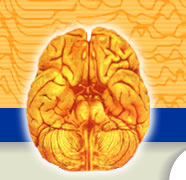 |
||||
|
||||||||||||||||||||
|
|
Alarik T. Arenander, Ph.D. Brief Biography Dr. Alarik Arenander is a neuroscientist, educator, national lecturer, and leading researcher into the neurobiology of brain development. His work has helped establish the field of neuroscience as science’s leading area for exploring human potentiality. Dr. Arenander has conducted pioneering research at University of California at Los Angeles, Penn State University at Hershey, University of Wisconsin at Madison, and Maharishi University of Management in Fairfield, IA. Since 1999, Dr. Arenander has been the Director of the Brain Research Institute at Maharishi University of Management (MUM) in Fairfield, Iowa. His research focuses primarily on brain development, including both basic and applied research in the relationship of brain and consciousness and the role of the environment and experience on developmental processes. Research projects include the following:
BackgroundDr. Arenander received his Ph.D. in brain research from UCLA in 1980 with one of the first studies mapping the biochemical language of neural intercellular communication and its modification by stress and reproductive hormones during brain development. Dr. Arenander has been involved in brain research for the past 30 years. His early studies included work at the University of Wisconsin at Madison in molecular and developmental biology, than at Penn State University’s Hersey Medical College, and UCLA’s Torrance General Hospital, where he studied neuroendocrine patterns across different states of consciousness and in various disease conditions. In 1980, he helped establish the first doctoral program in the Neuroscience of Human Consciousness in the world. As leader of the Cognitive Neuroscience Research Group (CNRG) at MUM, he conducted research into brain mechanics of meditation, as it effects perception and cognition, including the relationship of coherent brain processes and development of intelligence in children. Returning to UCLA in 1986, he began groundbreaking neurogenetic research funded by the National Institutes of Health (NIH), to identify the complex network of transcriptional control factors that transform the complex changing pattern of environmental signals into decisions that determine the developmental pathways of the mature human brain physiology. Since 1993, Dr. Arenander has pursued full-time research in consciousness and brain physiology and has toured the U.S. and Canada continuously to present the most advanced knowledge available in this field of brain and consciousness to enhance human potential and well-being and contribute to establishing a peaceful and enlightened future for the children of the world. |
Home | Contact Us |
||